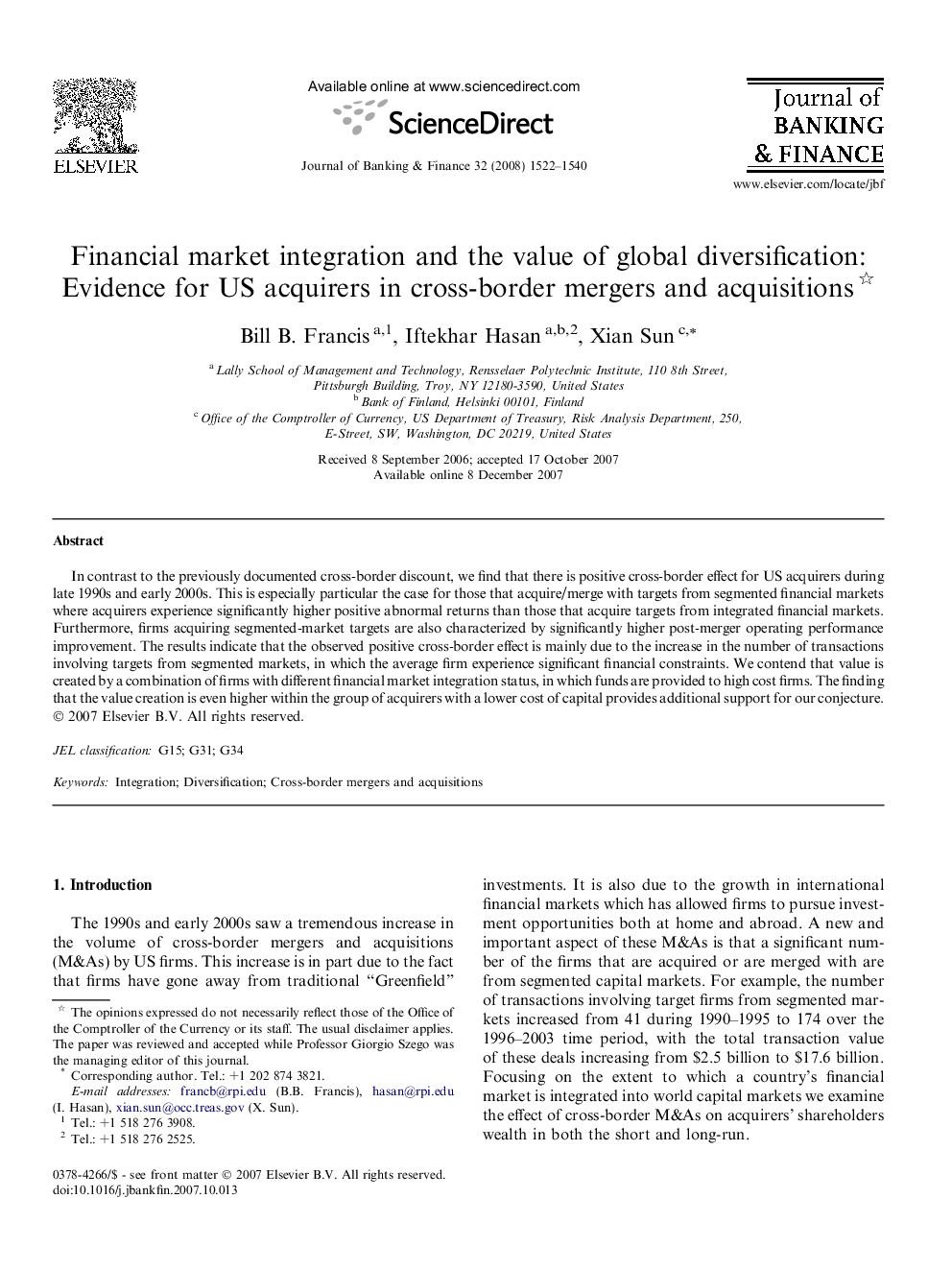| Article ID | Journal | Published Year | Pages | File Type |
|---|---|---|---|---|
| 5090848 | Journal of Banking & Finance | 2008 | 19 Pages |
Abstract
In contrast to the previously documented cross-border discount, we find that there is positive cross-border effect for US acquirers during late 1990s and early 2000s. This is especially particular the case for those that acquire/merge with targets from segmented financial markets where acquirers experience significantly higher positive abnormal returns than those that acquire targets from integrated financial markets. Furthermore, firms acquiring segmented-market targets are also characterized by significantly higher post-merger operating performance improvement. The results indicate that the observed positive cross-border effect is mainly due to the increase in the number of transactions involving targets from segmented markets, in which the average firm experience significant financial constraints. We contend that value is created by a combination of firms with different financial market integration status, in which funds are provided to high cost firms. The finding that the value creation is even higher within the group of acquirers with a lower cost of capital provides additional support for our conjecture.
Related Topics
Social Sciences and Humanities
Economics, Econometrics and Finance
Economics and Econometrics
Authors
Bill B. Francis, Iftekhar Hasan, Xian Sun,
